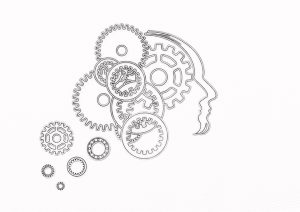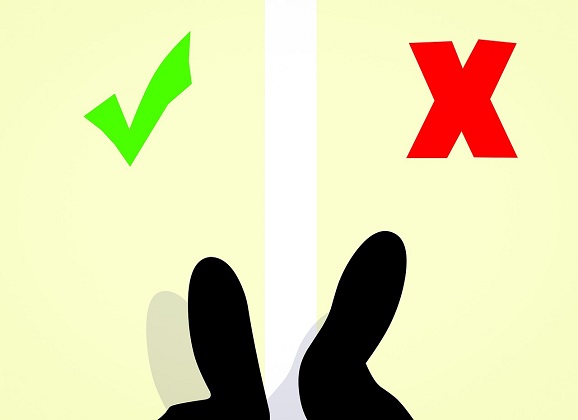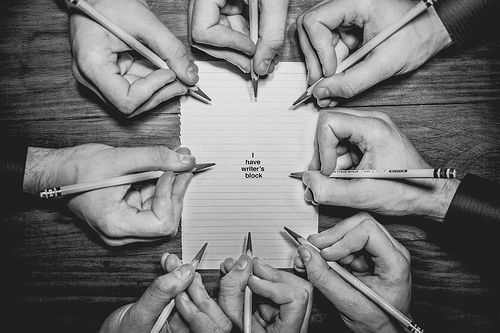Mastering Your Memory
Memory…is the diary that we all carry about with us. — Oscar Wilde
What’s the biggest thing you’ve ever forgotten? Don’t worry, with my head in the clouds so often , I’m sure I’ve done worse.
Along with improving your concentration, improving your memory is probably one of the most important cognitive skills to develop. So to help you do so today, I’m going to start with a little magic.

As sensational as this title was for George Miller’s famous scientific report, it succinctly described the finding: on average, humans are capable of holding between five to nine pieces of information in their head at the same time.
For example, if I gave you a 9-digit string of numbers, you would be able to recall the order for somewhere between five to nine of the digits. (And in fact, lore has it that it was this discovery which convinced Alexander Graham Bell to standardize phone numbers to a seven-digit format.)
However, one trick for getting past this mental limitation is known as chunking. For example, if tasked with memorizing a string of letters, don’t think of them as DRTHWXNUY; instead, try remembering clumps as single units: DRT … HWX … NUY
You can use this technique with grocery shopping (try to clump similar items together), vocab for a test (group names or terms as conceptual blocks), or other serial recall tasks. However, this advice leads to another technique for remembering things: cognitive elaboration.
Cognitive elaboration involves thinking deeply on something you want to remember, connecting this new information to your past architecture of stored knowledge. For example, by taking the time to group your grocery items into chunks, you are incorporating this novel list of items into past, sturdy knowledge.
One cool study that demonstrates this effect involved bringing participants into the lab and having them watch five TED Talks (educational videos) with the foreknowledge that they would be tested on the content later.
Importantly, however, half of the participants were randomly assigned laptops to take notes, the other half, pen and paper.
After about 30 minutes following the videos (when participants did mentally distracting tasks), they were given a test on both factual and conceptual information. And across all the studies, those taking notes by longhand significantly outperformed those on the computer.

But so far, we have talked about remembering things in the moment and the past but nothing for the future. So how can I help here?
Imagine, late at night, that you suddenly remember you need to bring a document into work tomorrow. Beginning to worry that you’ll forget it hidden on your desk, you quickly recall Jake’s tip from that awesome psychophilosophy blog you read:
(1) think of something near the document that is likely to catch your eye, e.g., a new hat you bought (2) elaborate on why the hat is distinctive, e.g., you don’t often by hats; (3) associate the hat with the document, e.g., imagine that your hat was made out of the document.
And voila! When you notice your hat in the morning, you’ll recall you need the document!
In fact, researchers have tested this tactic against other tricks for remembering things in the future (like leaving a note for yourself), and still this method outperforms it!
However, to really learn how to have a memory worthy of the USA Memory Championship, you should check out this New York Times Bestseller, Moonwalking with Einstein.
Or, if you just want the most powerful trick from there, you can check out a prior post.
Memorably,
jdt
Everyday Psychology: Is having a better memory always a good thing? Most people often report wishing to “forget memories.” How are these types of qualitatively memories different–those we want to remember but can’t; and those we don’t want to remember but have to? For a fun exploration of this topic, check out the movie Eternal Sunshine of a Spotless Mind.
Johnson, N. F. (1970). The role of chunking and organization in the process of recall. Psychology of learning and motivation, 4, 171-247.
Miller, G. A. (1956). The magical number seven, plus or minus two: Some limits on our capacity for processing information. Psychological review,63(2), 81.
Mueller, P. A., & Oppenheimer, D. M. (2014). The pen is mightier than the keyboard advantages of longhand over laptop note taking. Psychological science, 0956797614524581.
Rogers, T., & Milkman, K. L. (2016). Reminders Through Association. Psychological Science. 27(7), 973-86.









Moonwalking with Einstein is an excellent book, I loved reading it. So fascinating!
I couldn’t agree more. Really a fascinating read with a lot of actual, useful advice. I love how he blended the narrative with teaching–totally my goal if I ever write a popular press psychology book ha